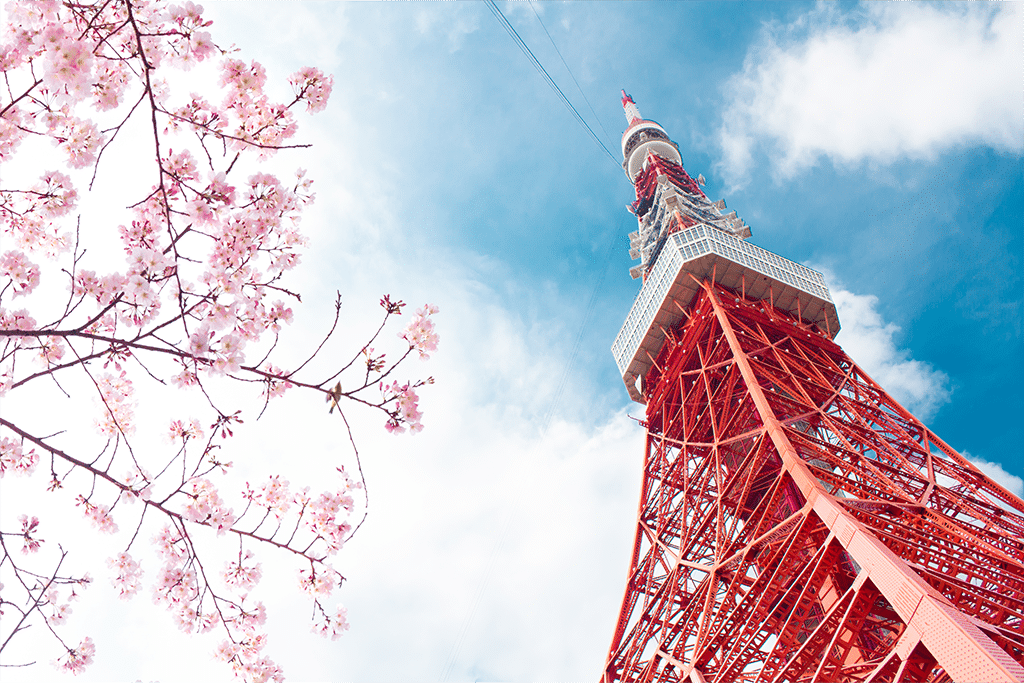Moving to Japan: Essential Costs and Practical Tips for Expats

Thinking about moving to Japan? Whether you’re drawn to the bustling streets of Tokyo, the historic charm of Kyoto, or the modern vibe of Osaka, Japan offers a unique blend of traditional and contemporary experiences for expats. As an attractive destination for international professionals, students, and adventurers, Japan promises a high-quality lifestyle with rich cultural experiences and numerous opportunities.
Understanding the costs and practicalities of living in Japan is crucial before moving. From navigating the cost of living in major cities to dealing with daily expenses, healthcare, and housing, being well-prepared can make your transition smoother and more enjoyable.
This article will provide you with detailed insights into the essential costs you can expect, as well as practical tips to help you settle into your new life in Japan.
Essential Costs of Living in Japan
Japan‘s living costs can vary significantly depending on the city. Here, we break down the expenses in major Japanese cities, housing costs, daily living expenses, and transportation options.
Housing Costs in Major Cities
- Tokyo: Tokyo, the capital city, is known for its high cost of living. Monthly rent for a smaller, one-bedroom apartment in the expensive city center averages around $1,500 (23,9537 JPY), while a larger apartment can cost up to $4,000 (63,6100 JPY).
- Kyoto: Known for its historical sites and cultural heritage, Kyoto has a slightly lower cost of living than Tokyo. Monthly rent for a small apartment is about $1,000 (15,9025 JPY). A larger apartment will cost around $2,800 (44,5270 JPY).
- Osaka: As Japan’s third-largest city, Osaka offers a vibrant lifestyle with lower housing costs than Tokyo. A small apartment costs approximately $1,100 (17,4927 JPY) per month, and a larger apartment costs $2,900 (46,1172 JPY).
- Yokohama: Near Tokyo, Yokohama is a popular choice for expats. The cost of living is slightly lower than in Tokyo, with average rents for small apartments at about $1,300 (20,6732 JPY) and larger apartments at around $3,300 (52,4782 JPY).
- Sapporo: Sapporo, known for its snow festivals, offers more affordable living costs. Rent for a small apartment averages around $1,100 (17,4927 JPY) and a larger apartment averages $2,800 (44,5270 JPY).
- Fukuoka: Fukuoka is known for its blend of modern and traditional lifestyles. It’s more affordable than Tokyo or Osaka, with rents around $1,000 (15,9025 JPY) for a small apartment. Larger apartments are available for $2,500 (39,7562 JPY) on average.
Using a real estate agent can help navigate the rental market, although this may involve additional fees. It’s common to pay key money and deposits equivalent to several months’ rent.
Daily Living Costs
- Grocery prices: A gallon of milk costs around $5.15 (819 JPY), and a dozen eggs are about $2.05 (326 JPY). Fresh produce and meat are also relatively expensive.
- Dining out: A meal at an inexpensive restaurant costs around $6.29 (1,000 JPY), while a mid-range three-course meal for two can be $37.73 (6,000 JPY). Fast food options like McDonald’s cost about $4.72 (750 JPY).
- Drinks: A cappuccino in a cafe costs around $3.46 (550 JPY), while a small bottle of Coke or Pepsi is about $0.97 (154 JPY). A bottle of domestic beer costs approximately $1.93 (307 JPY), while imported beer can be around $2.58 (411 JPY).
- Gasoline: For those with their own vehicles, gasoline is priced at about $4.07 (647 JPY) per gallon.
- Utilities: Monthly utilities (electricity, heating, cooling, water, garbage) for a 915-square-foot apartment cost an average of $158.91 (25,271 JPY). Internet services average around $25.15 (4,000 JPY) per month. A mobile phone monthly plan with calls and data typically costs around $24.52 (3,899 JPY).
- Fitness club: A monthly membership at a fitness club costs about $53.75 (8,547 JPY).
- Child care: Full-day private preschool or kindergarten costs approximately $336.02 (53,436 JPY) monthly.
- Clothing: A pair of jeans from a popular brand costs around $41.23 (6,556 JPY), and a summer dress from a high-street store costs about $28.62 (4,551 JPY).
Public Transportation
The Shinkansen (bullet train) is an efficient but costly option for long-distance travel. A one-way trip from Tokyo to Osaka costs around $113.19 (18,000 JPY). Local and regional trains are more affordable.
Monthly public transportation passes cost between $50 and $60 (or 8,000 and 9,500 JPY), depending on the city. These passes include buses, subways, and trains, making daily commuting convenient and cost-effective.
Initial taxi fares start at about $3.68 (585 JPY), with each additional mile costing approximately $4.40 (700 JPY). Waiting time is around $21.38 (3,400 JPY) per hour.

Practical Tips for Expats Moving to Japan
Moving to Japan involves more than just understanding the cost of living. Expats need to navigate various practical aspects to ensure a smooth transition. Below are key tips for managing visas, banking, healthcare, and education in Japan.
Visa and Immigration
Japan offers several types of visas for expats including:
- Work visa: This is required for those employed by a Japanese company. Common categories include specialist in humanities, engineer, and instructor.
- Highly skilled professional visa: Designed for individuals with advanced skills and qualifications, this visa offers additional benefits, such as a fast track to permanent residency.
- Permanent residency: This status is available for those who have lived in Japan for several years and often requires contributions to the country through work or research.
The visa application process involves obtaining a Certificate of Eligibility (COE) from a Japanese sponsor, such as an employer. The sponsor submits the application to the Immigration Bureau in Japan, and upon approval, the COE is sent to the applicant, who then applies for the visa at a Japanese embassy or consulate in their home country.
Opening a Bank Account
Opening a Japanese bank account requires a residence card, a passport, and an inkan (personal seal). Some banks may also request proof of address and a phone number. The process involves filling out forms in Japanese, so having assistance from a Japanese speaker can be helpful.
Major banks like Mitsubishi UFJ, Sumitomo Mitsui, and Mizuho are popular among expats due to their extensive ATM networks and English-speaking staff. Online banks, such as Shinsei Bank, offer more user-friendly services in English.
To manage exchange rate fluctuations, it helps to maintain accounts in both JPY and USD. Transfer services like Wise and Revolut can facilitate easy currency conversion and international money transfers.
Japan’s Healthcare System
Expats are required to enroll in Japan’s National Health Insurance (NHI) or Employees’ Health Insurance (EHI) if they have a full-time job. NHI premiums are based on income, while EHI premiums are shared between the employee and employer.
Japan boasts a high-quality healthcare system with widespread access to medical services. Most medical professionals speak limited English, so learning basic Japanese medical terms or having a translator can be useful. Expats should also be aware of the co-payments required for medical treatments, which typically range from 10% to 30% of the total cost.
Education and International Schools
Japan’s education system is highly regarded, with a focus on discipline, respect, and academic excellence. Public schools are primarily Japanese-language, which may pose challenges for non-Japanese speaking children.
For expat families, international schools offer a curriculum in English and other languages, following various international educational standards such as the International Baccalaureate (IB) or American curricula. Notable international schools include the American School in Japan (Tokyo), Kyoto International School, and Osaka International School. These schools provide a multicultural environment and support for transitioning students.
By understanding these key areas, expats can better prepare for their move to Japan, ensuring a smoother transition and a more enjoyable experience in their new home.
Japanese Culture and Daily Life
The Japanese work culture emphasizes teamwork, respect for hierarchy, and a strong work ethic. Long working hours and a focus on group harmony are typical. Employers value punctuality, dedication, and meticulous attention to detail. While the concept of lifetime employment is declining, it still influences many companies, fostering loyalty and long-term commitment.
Expats can find job opportunities in various sectors, such as education (particularly English teaching), IT, engineering, finance, and hospitality. Positions that require English proficiency or international expertise are particularly accessible. Websites like GaijinPot and Daijob are useful resources for job hunting.
While many Japanese companies appreciate expats’ skills, language barriers can still be a challenge. English-speaking roles are available, but proficiency in Japanese greatly enhances job prospects and workplace integration. Understanding cultural nuances, such as indirect communication and the importance of formalities, is crucial.
Many resources are available for learning Japanese, including language schools, online courses, and self-study books. Institutions like the Japan Foundation offer comprehensive programs, while local community centers often provide affordable classes for beginners.
Digital tools can facilitate language learning. Apps like Duolingo, Rosetta Stone, and Anki are popular for their interactive and user-friendly approaches. For advanced learners, Nihongo Shark and WaniKani offer in-depth kanji and vocabulary training.
Engaging with the Expat Community
Connecting with other US expats in Japan can ease the transition and provide a support network. Websites like Meetup.com and InterNations.org list social events, hobby groups, and networking opportunities for expats. These activities range from language exchange meetups to cultural tours and sports clubs.
Many cities also have active expat communities where newcomers can share experiences and tips on navigating life in Japan.
Building relationships with Japanese citizens enriches the expat experience and fosters cultural exchange. Joining local clubs, participating in community events, and showing respect for Japanese customs and traditions are effective ways to integrate.
Understanding and practicing local etiquette, such as bowing, removing shoes indoors, and using polite language, helps in making meaningful connections with the Japanese people.
Tips for a Smooth Transition
These suggestions will help ensure a smooth and enjoyable transition to life in Japan:
- Using public transportation: Japan’s public transportation system is renowned for its efficiency and reliability. Expats should get a prepaid IC card like Suica or Pasmo, which can be used across most trains and buses. These cards offer convenience and can be recharged at stations and convenience stores. To save on transportation, use public transit during off-peak hours and look for special discount passes.
- Shopping and dining: Japan offers diverse shopping and dining experiences. You can save money at convenience stores like 7-Eleven, which provide affordable meals and essentials. Supermarkets and local markets offer fresh produce and groceries. Dining out ranges from inexpensive meals at ramen shops to high-end restaurants.
- Exploring Japanese culture and traditions: Japan is rich in culture and traditions. Cherry blossom (sakura) viewing in spring is a popular activity, with parks like Ueno Park in Tokyo being prime spots for hanami (flower viewing) picnics. Other cultural experiences include tea ceremonies, visits to Japanese national temples and shrines, and local festivals featuring traditional music and food.

Move to Japan with Confidence
Moving to Japan involves navigating a variety of essential costs and practical considerations. From understanding the cost of living in big cities to managing daily expenses and using public transportation effectively, planning ahead is key to a successful transition.
For digital nomads and other professionals, Japan offers a high quality of life, but it’s important to be aware of income tax obligations and other financial considerations. Whether you’re seeking job opportunities in major cities or planning an international move for a new adventure, Japan provides a rich cultural environment and numerous resources for English speakers to ease the transition.
The Greenback Expat Tax Services team is dedicated to providing US expats with hassle-free, accurate tax preparation services. We offer personalized support to help you navigate the complexities of expat taxes, ensuring you stay compliant with both US and Japanese regulations. Trust Greenback Expat Tax Services to handle your tax needs so you can focus on enjoying your new life in Japan.
Dreading the last minute scramble of pulling together your tax documents? Despair no more!



